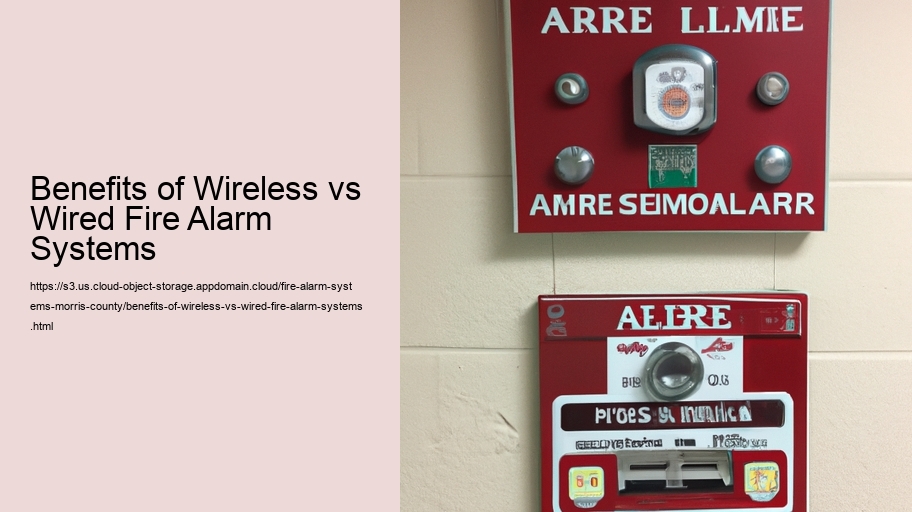Title: Evaluating the Benefits of Wireless vs Wired Fire Alarm Systems
Integrating Smart Home Technology with Fire Alarms .
Introduction
In the realm of fire safety, the choice between wireless and wired fire alarm systems presents a critical decision for homeowners, businesses, and institutions alike. Each system type offers distinct advantages, and understanding these can be pivotal in making an informed choice that enhances safety and efficiency. As technology advances, the debate between wireless and wired systems is increasingly relevant, with both options offering unique benefits. This essay aims to explore these benefits, providing insights into which system might best suit different needs and environments.
Benefits of Wireless Fire Alarm Systems
Ease of Installation: One of the most significant advantages of wireless fire alarm systems is their ease of installation. Unlike wired systems, which require extensive cabling, wireless systems communicate via radio frequencies, eliminating the need for complicated wiring. This not only reduces installation time but also minimizes disruptions to the building's structure and daily operations. This feature is particularly beneficial in historic buildings where preserving the architectural integrity is essential.
Flexibility and Scalability: Wireless systems offer unparalleled flexibility and scalability. They can be easily expanded or reconfigured to accommodate changes in building layout or use. This adaptability is ideal for growing businesses or homes where renovations or expansions are common. Adding new detectors or devices to the system is straightforward, often requiring just a few adjustments, without the need for additional wiring.
Aesthetic Appeal: Without the need for visible wires and conduits, wireless fire alarm systems are more aesthetically pleasing. This makes them an attractive option for modern offices and homes where maintaining a clean, uncluttered appearance is a priority.
Reliability and Redundancy: Modern wireless systems are designed with robust reliability and redundancy features. They often include secure communication protocols and multiple frequency channels to prevent interference and ensure consistent performance. The use of battery-powered devices also means that the system remains operational even during power outages, providing an additional layer of safety.
Benefits of Wired Fire Alarm Systems
Stability and Interference: Wired fire alarm systems are renowned for their stability and immunity to interference. Once installed, they provide a consistent and reliable connection without the risk of signal disruption from other wireless devices. This can be a crucial advantage in environments with high levels of electronic interference.
Maintenance and Power Supply: Wired systems are typically connected to a central power supply, reducing the need for regular battery replacements. This can lead to lower maintenance requirements and costs over the system's lifetime. Additionally, wired systems often have fewer components that require regular checks, simplifying long-term upkeep.
Cost-Effectiveness for Large Installations: While the initial installation of wired systems can be more labor-intensive and costly, they can be more economical for large-scale installations. The cost per unit may decrease as the scale increases, making them a preferred choice for extensive facilities such as hospitals, schools, and large office buildings.
Proven Track Record: Wired systems have a long-standing history of reliability and effectiveness. For those who prioritize tried-and-tested technology, wired systems offer peace of mind with their established performance records.
Conclusion
The decision between wireless and wired fire alarm systems depends on various factors, including the specific needs of the space, budget constraints, and future plans for expansion. Wireless systems excel in flexibility, ease of installation, and aesthetic considerations, making them ideal for modern, dynamic environments. In contrast, wired systems offer unmatched stability, lower long-term maintenance, and cost-effectiveness for large installations, appealing to those who value traditional reliability.
Ultimately, both wireless and wired fire alarm systems have their distinct benefits, and the choice may also depend on personal preference and specific situational requirements. As technology continues to evolve, the integration of both systems might become increasingly common, leveraging the strengths of each to provide comprehensive fire safety solutions.
